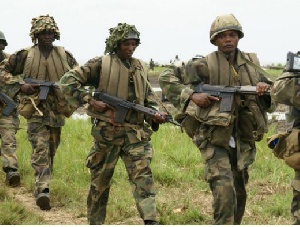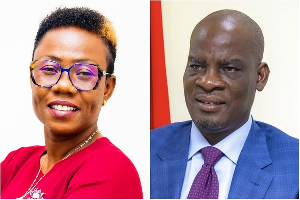...projects not ready
Yesterday, Kwadwo Baah-Wiredu told reporters that "Ghana on September 27th, 2007 became the first Sub-Saharan African sovereign country (except South Africa) to access the international bond market."This the country did with a benchmark issue of $750 million, 10-year tenure and at a coupon rate of 8.5 percent. The Minister further remarked that prior "to our bold step on the global market, the country's main external financing were from multilateral institutions such as the World Bank, the International Monetary Fund and the Africa Development Bank Group, and bilateral countries."
The Minister explained that the traditional sources of funding, while concessional "were not adequate" and that "they also came with some challenges."
But, The Statesman can report that the more luscious bond market comes with its own challenges. Major of these is the readiness of the country to spend the money raised.
Already, The Statesman has learnt that the money, $350m short of a billion dollars, is safely in the coffers of the Bank of Ghana. Interest has started building up fast on this $750 million debut sovereign bond issue raised to help accelerate the country's infrastructural development.
The $750m next month starts accumulating a monthly interest rate of 0.70%, by estimation. This means that government will be expected to pay an interest rate of 4.2% every half year on the bond.
Yofi Grant, an investment banker with Databank Financial Services, who were co-Managers of the bond issue, stated to The Statesman in an interview, "Government has already drawn its development programmes for the bond proceeds and will soon move into action for quick returns."
The money, already in Ghanaian chest but not at project sites, will accrue accumulated interest to be paid investors every six months to subscribers. Though, $200m has been immediately released to the Energy sector to manage short and long term projects.
Responsibly, Government intends for the monies to be invested in high yielding infrastructural ventures in power-generation, road and rail transport. In order to make full cost recovery of the monies given to the road sector, for example, many toll booths will be constructed along to make the project self-amortizing. Also, current toll fees are under review.
Major areas of investment are the Accra-Kumasi highway, which is already partly under construction and the opening up of more roads linking the rural parts of the country. The 202-kilometre Nsawam-Kumasi Road will be turned into a total dual carriageway.
But, checks made by The Statesman showed no clear dates on when some of these projects are to kick-off. In fact, the concerns raised by Finance Minister Baah-Wiredu in the days leading to the bonds issue, seem to be materializing.
He warned at the time that the habit of delaying for six months or more before accessing and spending loans and grants form the traditional multilateral and bilateral sources has to stop.
Yesterday, the Minister praised the Ghanaian media for the critical role they play in checking government in the management of the economy, which he said puts government on its toes. "We even presented some of your writings when we went to the international market to negotiate for the bond."
On the management of the funds, BoG Deputy Governor Dr Bawumea has given the assurance that the management committee has already been constituted and has even started working.
Though Paul Acquah, head of the central bank says the funds are for specific projects, his additional words that they are looking at projects that can pay for themselves betrayed and confirmed the anxiety that the country’s readiness to efficiently and speedily spend the funds raised from the money market leaves a lot to be desired.
Dr Acquah explained that Ghana’s access to the international capital market means "we have brought ourselves additional scrutiny."
This is a message that Mr Baah-Wiredu hopes the country’s quantity surveyors and project managers will take seriously to heart and in their attitudes towards state-sponsored projects.












